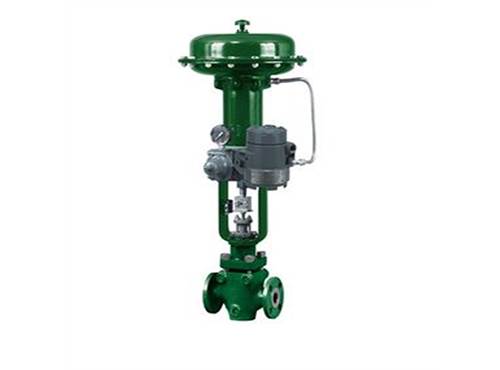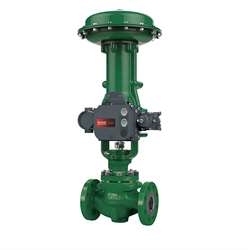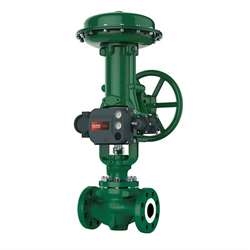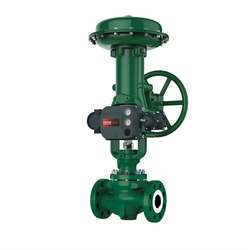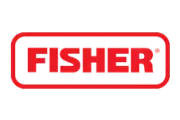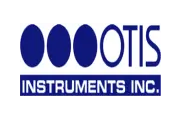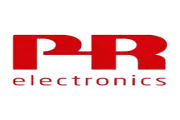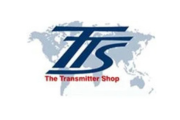Fisher 846 Electro-Pneumatic Transducer
Fisher® 846
Fisher® 846 electro-pneumatic transducer accepts an electrical input signal and converts it to a pneumatic output signal. The transducer includes a patented deflector/nozzle design that consists of two nozzles positioned so that the constant air flow exiting the supply nozzle. Vibration resistant and tolerant of dirty supply air.
- Vibration Resistant—The low-mass pilot stage, mechanically damped deflector bar, and rugged construction provide stable performance in vibration.
- Large Diameter Nozzles—Large diameter nozzles, free-flow pilot stage design, and large internal pneumatic supply passages provide excellent tolerance to reducing the effects of contaminant buildup and erosion.
- Increased Accuracy, Reduced Sensitivity to Supply Pressure Variations and Downstream Leakage—The electronic feedback control network monitors the pneumatic output signal, detects any input-output deviations and corrects them. This provides very high accuracy and allows the transducer to sense changes in the final element condition and rapidly optimize its air delivery.
